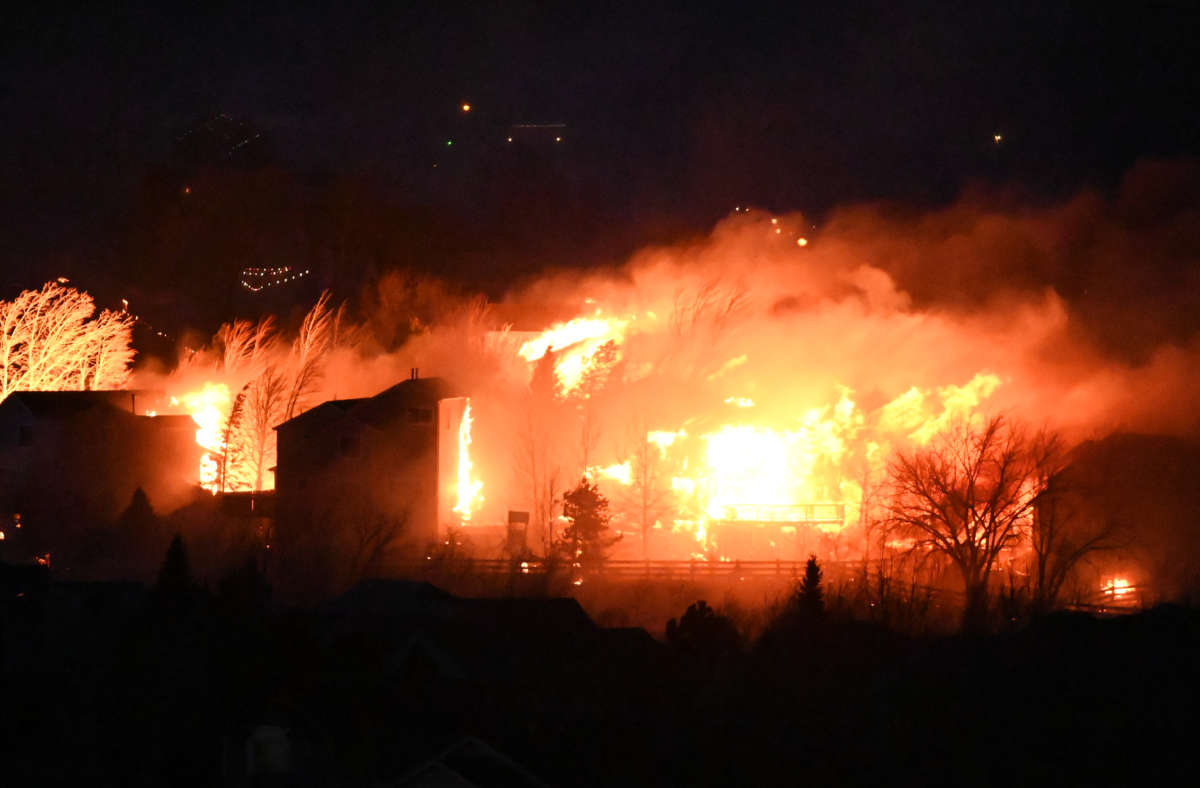A Brief Colonial History Of Ceylon(SriLanka)
Sri Lanka: One Island Two Nations
A Brief Colonial History Of Ceylon(SriLanka)
Sri Lanka: One Island Two Nations
(Full Story)
Search This Blog
Back to 500BC.
==========================
Thiranjala Weerasinghe sj.- One Island Two Nations
?????????????????????????????????????????????????Saturday, January 1, 2022
Climate Crisis Fuels Late-December Wildfires Ravaging Colorado

BY Jake Johnson, December 31, 2021
Tens of thousands of Coloradans were forced to flee their homes Thursday as two fast-moving wildfires — whipped up by wind gusts reaching 110 mph — tore through communities just outside of Denver, engulfing entire neighborhoods in flames and destroying hundreds of buildings.
Colorado Gov. Jared Polis has declared a state of emergency to help aid the disaster response as officials characterized the late-December fire event as among the worst in the state’s history.
“None of this is normal,” said Colorado state Rep. Leslie Herod (D-8). “We are not OK.”
Experts said the combination of months of unusually dry conditions, warm winter temperatures, and ferocious winds set the stage for the devastating blazes, which meteorologist Eric Holthaus viewed as further evidence that “we are in a climate emergency.”
The Colorado branch of the Sunrise Movement agreed, writing on social media that the fires were “fueled by the climate crisis.” A growing body of evidence has detailed the extent to which human-caused climate change is driving more frequent and intense wildfires in the U.S. and across the globe.
“People are losing their homes and running for their lives from a fire that started December fucking 30th,” Sunrise Colorado tweeted before turning its attention to Sen. Joe Manchin (D-W.Va.) and the Big Oil-friendly infrastructure law he helped craft.
“Sen. Manchin, your Exxon highway bill isn’t going to save our homes or our lives,” the group said. “Your greed and corruption is not only torching our future. It’s burning our communities and destroying lives tonight.”
Manchin, a close ally of the fossil fuel industry, is currently blocking progress on Democrats’ Build Back Better Act, a $1.75 trillion reconciliation package containing hundreds of billions of dollars in climate-related investments.
Officially known as the Marshall and Middle Fork fires, the blazes have thus far torched nearly 600 homes and 1,600 acres in the Boulder County area. Avista Adventist Hospital, a 114-bed facility in Louisville, was forced to evacuate its intensive care units.
No deaths and several injuries had been reported as of late Thursday as firefighters worked to contain the damage, an effort they hope will be assisted by a forecasted New Year’s Eve snowstorm.
Colorado Public Radio observed that while the exact cause of the destructive blazes is not yet clear, “early evidence suggests a sparking power line could have ignited the fires.”
“Late-December wildfires aren’t unheard of in Colorado, but the colder fall and winter months used to mean a break from the state’s peak fire season,” the outlet noted. “Scientists and fire ecologists say climate change, fueled by human-made carbon emissions, has added 78 days to the fire season since the 1970s.”
Environmentalist Bill McKibben likened the horrific images emerging from Colorado to “when the comet hits in ‘Don’t Look Up,'” a globally popular new film satirizing climate denial.
“So look. Long and hard,” McKibben said. “And then get to work breaking the power of the fossil fuel industry.”
